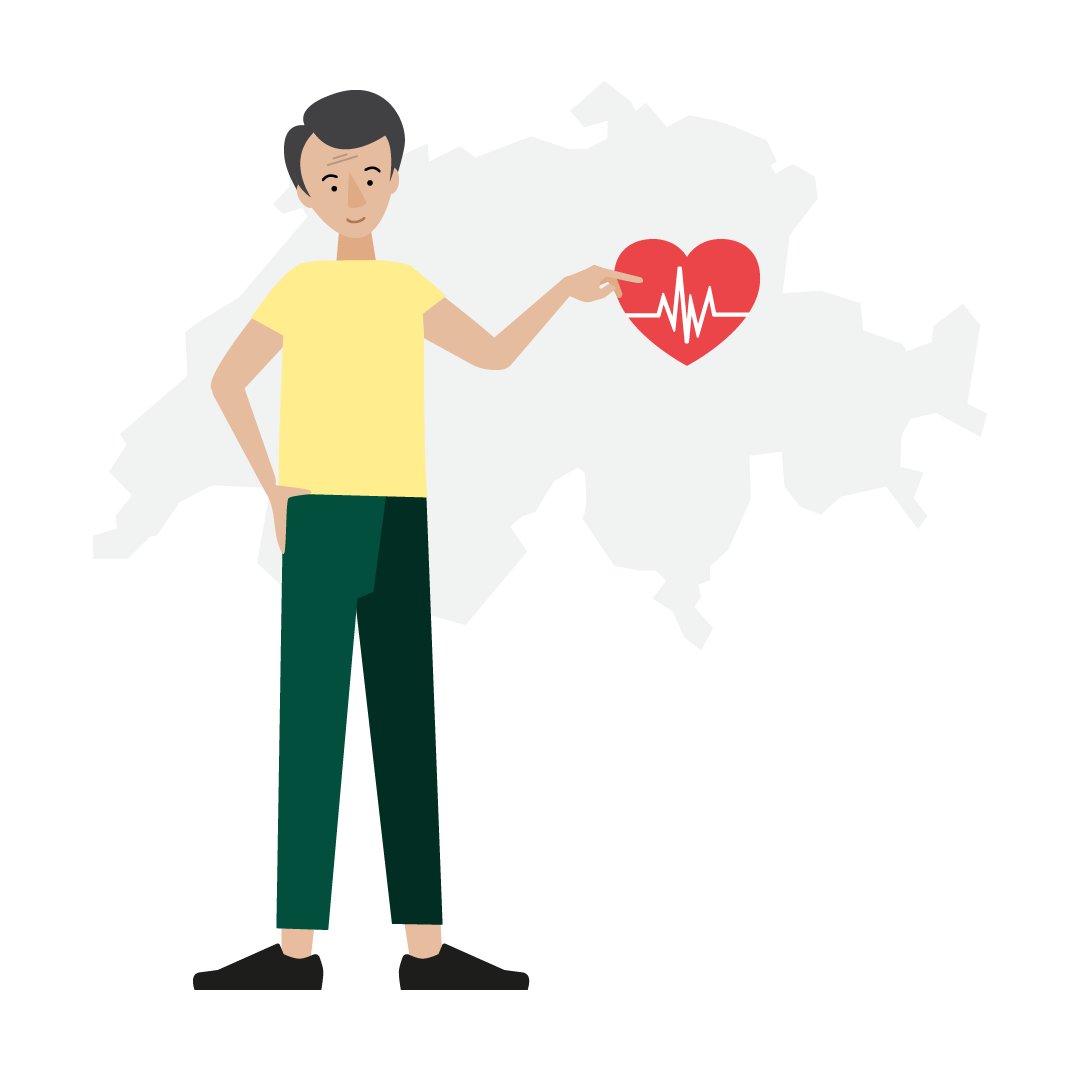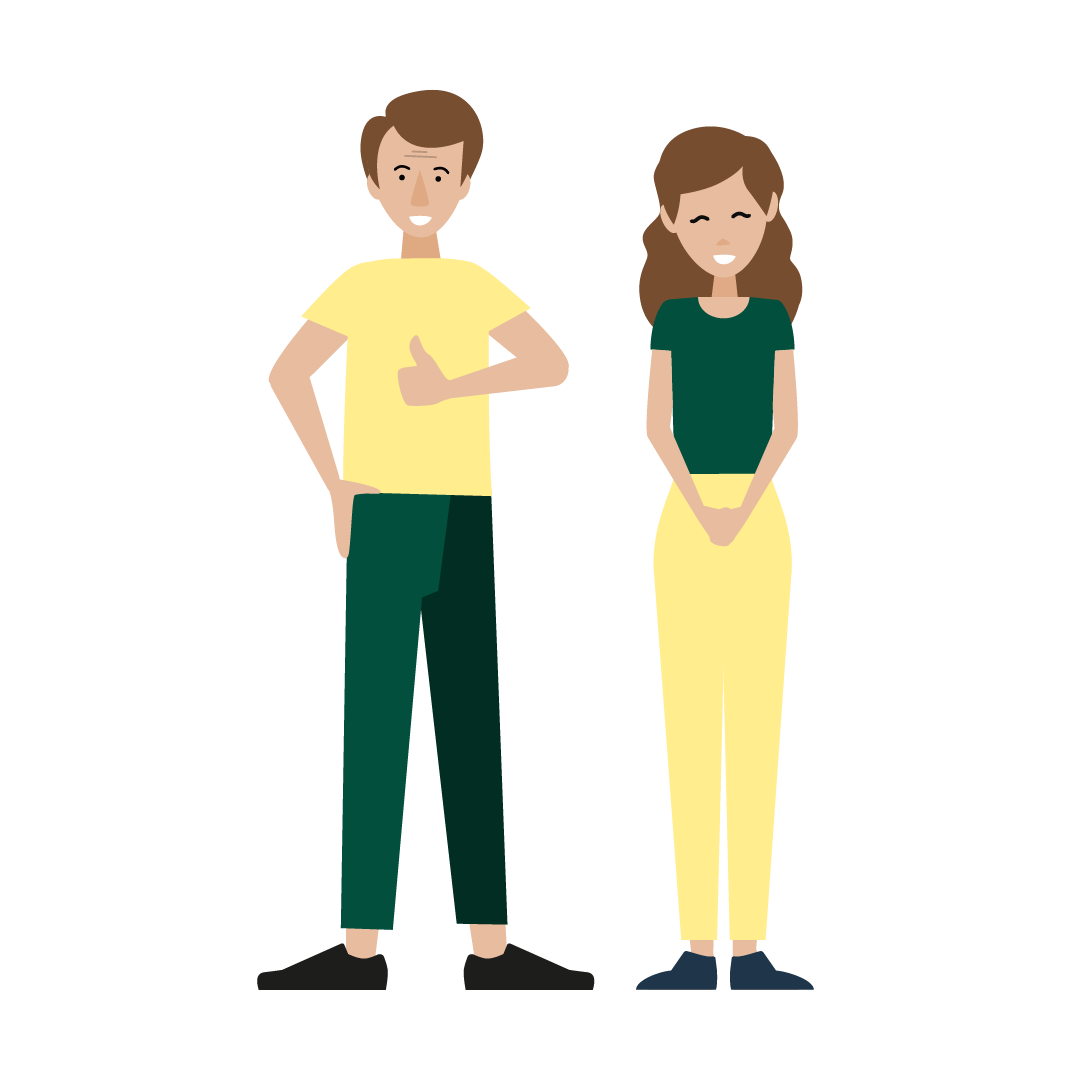
in Switzerland
Cost of living in Switzerland
Although the cost of living in Switzerland is expensive, salaries are high. Find out what Swiss households spend their money on – and how you can save.
Housing and energy

Housing and energy costs have the biggest impact. According to a survey by the Federal Statistical Office (FSO), they accounted for an average of around 14% of earnings in 2021. The FSO’s calculation was based an average household of 2.1 people with a gross monthly income of CHF 9,788.
-
Cantonal variations
Affordable housing is scarce in Switzerland. Rents in rural areas are generally cheaper on average than in cities. There are also differences between the cantons. Rental prices are highest in Zug and Zurich, while they are comparatively low on average in Glarus, Neuchâtel and Jura. Salary and cost of living often go hand in hand. For example, life in Zurich city is expensive, but salaries are also top, too.
No more than one-third of net income
Budgetberatung Schweiz recommends the following rule of thumb: housing costs should not exceed 25% of your net income. The lower the family income, the less you should spend on rent. With higher incomes and, depending on the size of the household, housing costs can amount to up to 33% of net income.
-
Where you live affects your premium
Your health insurance premium is determined not only by your age and sex, but also where you live. Larger Swiss cantons are divided into two or even three premium regions, in which the premiums for basic insurance vary.
-
Money-saving tips
- Move from the city to the suburbs
- Start a flat-share
- Acquire cooperative shares in a housing corporation
- Claim a rent reduction if the reference interest rate falls
- Implement energy-saving measures in your home
Taxes

One of the biggest mandatory expenses is income and wealth tax. Switzerland is not one of the highest tax countries internationally. Within the borders, however, there are considerable differences in the tax burden – not only from canton to canton, but also from municipality to municipality. With an income of CHF 100,000, bills for cantonal and communal tax can differ by several thousand francs depending on where you live.
-
Ordinary taxation
In Switzerland, tax is not deducted directly from your salary. You complete a tax return and receive a tax invoice from the tax office. An exception applies to persons living abroad who work in Switzerland.
-
Tax liability in Switzerland for foreigners
Foreign employees are subject to withholding tax in Switzerland. This does not apply to people
- who have a permanent residence permit (C permit) or
- whose spouse has a permanent residence permit (C permit) or a Swiss passport.
People living abroad who earn income in Switzerland also pay withholding tax. Depending on your country of origin, withholding tax may be nothing new for you: Your employer deducts the taxes directly from your gross salary. More information on withholding tax is available from the cantonal tax authorities.
-
Money-saving tips
- Compare municipal tax rates
- Make legally permitted tax deductions
- Payments into private pension provision (3rd pillar) reduce tax burden
- Move to a lower-tax municipality before withdrawing the 3rd pillar
- Pay taxes in advance and benefit from refund interest
- Compare municipal tax rates
Want to calculate your cost of living in Switzerland?
Health insurance premiums
Switzerland has one of the best and most expensive healthcare systems in the world – with the advantage that everyone has the same access to medical care through basic insurance. However, healthcare costs will continue to rise in the future because the population is getting older and medical progress is increasing.
-
Increasing healthcare costs
Rising healthcare expenditure is driving premiums up. And these place an even bigger strain on the household budget. According to the household budget survey, mandatory health insurance accounted for 7% of disposable income in 2021. The Federal Statistical Office’s calculation was based on an average Swiss household with a gross income of CHF 9,788 for 2.1 people per month.
Salary and pension provision

The Swiss state places a lower tax and social security burden on employees than most European countries, which means that each and every individual has a greater responsibility to manage their own financial resources prudently and invest in private pension provision.
-
How much is deducted from the net salary?
The net salary is calculated by deducting social security contributions from gross pay. Do you want to know more about the social security contributions on your pay slip? The government’s factsheets are a good source of information. You can also ask your employer to explain the wage deductions. The most important items on your pay slip are:
Old-age and survivors’ insurance (AHV/AVS) – 4.35%
Invalidity insurance (IV/AS) – 0.7%
Fund for loss of earnings (EO) – 0.225%
Unemployment insurance (ALV) – depending on your annual salary
Occupational pension (BVG) – depending on your age. Approximately 7-18% of the insured salary
Non-occupational accident insurance (NBU) – 1 to 2% of gross pay. Often covered by your employer.
Withholding tax (QST) for foreign workers – depending on where you live
-
How does pension provision work?
Pension provision in Switzerland is based on three pillars: state pension provision (1st pillar), occupational pension provision (2nd pillar) and private pension provision (3rd pillar). Each pillar fulfils a different purpose.
1.
1st pillar: AVH/AVS state pension provision
The 1st pillar is mandatory. It is designed to ensure a minimum income when you reach retirement age. It is based on the principle of solidarity: the working population pays the contributions and thus finances the pensions of the retired population. AHV/AVS is deducted directly from your salary.
2.
2nd pillar: occupational pension provision
Occupational benefits insurance is compulsory for most people in employment. It supplements the AHV/AVS pension and is intended to ensure an adequate standard of living. As a rule of thumb, the income from the 1st and 2nd pillars provides an income that corresponds to around 60% of your pre-retirement income.
3.
3rd pillar: private pension provision
The 3rd pillar is voluntary. You can boost your budget in retirement by making regular payments. Even with small, well invested amounts, you can save a considerable amount over many years. You can also claim tax savings through the 3rd pillar. If you are subject to withholding tax, you can access the tax refund application online on the website of the cantonal tax office. If you’re not subject to withholding tax (i.e. tax deducted directly from your pay), you can make the deduction from your taxable income directly in your tax return.
Downloads
Frequently asked questions
-
Are health insurance contributions deducted from salaries in Switzerland?
No, unlike in countries such as Germany, employees and employers do not contribute to health insurance via incidental wage costs. However, most employees are insured against accidents through their employer, provided they work at least 8 hours a week for the same employer. Many employees receive continued salary payments in the event of illness. However, the exact terms of the contract vary from employer to employer.
-
How can I save money?
Our money-saving tips will show you how to reduce your premium and healthcare costs.
-
Do higher earners have to pay a higher premium?
No, basic insurance premiums depend on age and place of residence.
-
Do low-earners receive financial support?
Yes, people who fall below an income limit can apply for a premium subsidy at the relevant cantonal office. Important: be sure to observe the deadlines for submitting the application.
Any questions? We’ll be glad to help.
Fast advice in 19 languages with no obligation.